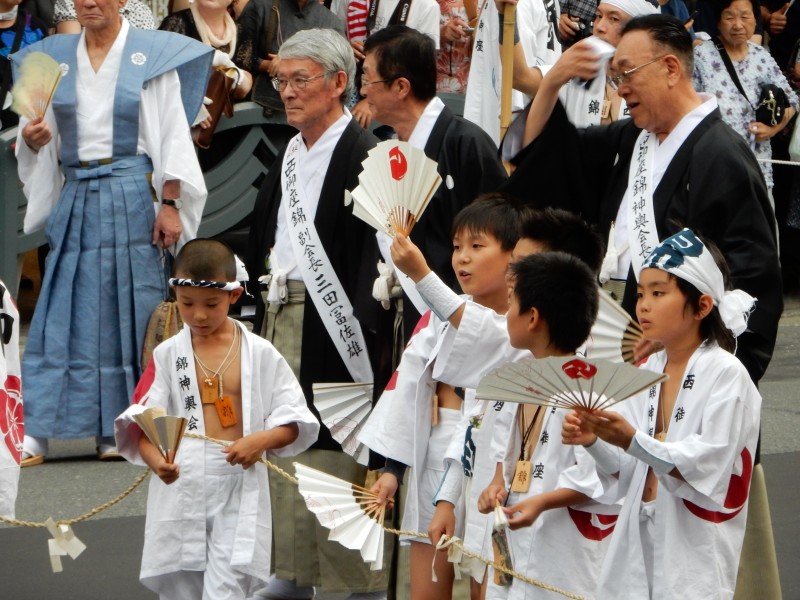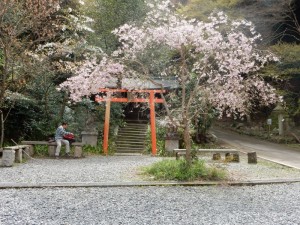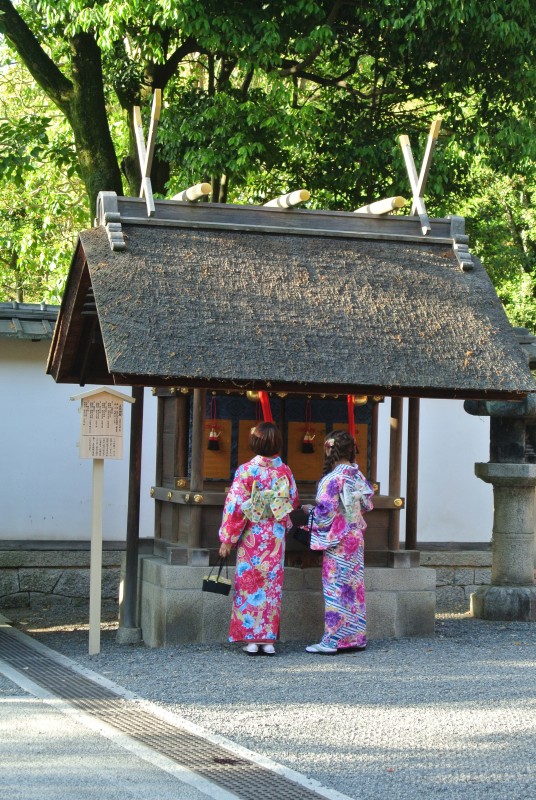
Green Shinto friend Amy Chavez has written an article for Rocket News in which she lists 17 positive things about Japan. Here’s her listing…
1) Returning favours
2) Thanking people
3) Politeness
4) Putting others first
5) Including everyone in the group
6) Respect for property
7) Drunkenness doesn’t lead to violence
8) Peace mentality
9) Govt run business works
10) Being less assertive
11) Being a good listener
12) Being less nationalistic
13) Gambaru (doing your best)
14) Commitment and keeping promises
15) Being a good citizen
16) Doing things with grace
17) Being on time
I find myself almost in total agreement with Amy here, though the only item in the list I might quibble about is no. 12. Personally I think Japanese have a strong sense of nationhood, but they don’t allow themselves to express it as openly as others because of WW2. It’s true they have a peace constitution, but this was imposed by the Americans and reinforces the sense of uniqueness (expressed in a plethora of books known as nihonjinron). As others have pointed out, Japanese ‘internationalism’ is actually a form of nationalism, for the fascination with other cultures serves as a way of defining themselves as special.
One symptom of Japan’s nationalism is the strong sense of homogeneity. Just look at how many asylum seekers Japan takes in – would any other developed nation be allowed to get away with as few as twelve in a year!!!? Racial attachment makes perfect sense in a Japanese context since, as Amy herself points out, belonging to a group is a key characteristic of the Japanese. And the nation as a whole is simply the ultimate Japanese group.
 Whatever one thinks about Japanese and patriotism, there are still 16 great attributes in Amy’s listing that command admiration. It’s my belief that these virtues (and the patriotism) are deeply rooted in Shinto values. Gratitude, for instance, is said to be fundamental to Shinto and is expressed throughout the culture at large. It makes living in Japan such a gratifying experience. Another cardinal virtue of Shinto is sincerity, meaning that doing one’s best, keeping promises, contributing to the group and being on time are treasured. Cynicism and alienation are largely lacking.
Whatever one thinks about Japanese and patriotism, there are still 16 great attributes in Amy’s listing that command admiration. It’s my belief that these virtues (and the patriotism) are deeply rooted in Shinto values. Gratitude, for instance, is said to be fundamental to Shinto and is expressed throughout the culture at large. It makes living in Japan such a gratifying experience. Another cardinal virtue of Shinto is sincerity, meaning that doing one’s best, keeping promises, contributing to the group and being on time are treasured. Cynicism and alienation are largely lacking.
Shinto is also a deeply communal practice, which emphasises the well-being of the group/village/rice-growing community. It sees human beings as part of nature, subservient to its destructive power and seasonal blessings, therefore the ego is suppressed in the face of the common good. It’s worth noting here that the Shinto symbol of a mirror is ‘kagami‘ in Japanese, whereas kami is the mirror without the ‘ga‘ (ego). This stands in contrast to the individualism of the West, which has resulted in societies in which the promotion of self is much more prominent.
As for the grace and elegance of life in Japan, one might presume this comes from the trickle-down effect of the aesthetics of Heian nobility, in which elegance was elevated into an all-important social attribute. But could this too be linked with Shinto? The importance of form in its rituals and objects of worship was examined in a recent Green Shinto posting (see The Art of Shinto).
It’s the social cohesion and consideration of Japanese for others that makes living in this country so wonderful. For myself it remains an almost daily source of joy, and it’s something that always impresses tourists to the country. It even impressed the first Western missionaries who came to Japan in the sixteenth century. How have the Japanese managed to maintain such high standards of social intercourse? Theories abound, but for myself I strongly suspect it’s something to do with living in a ‘kami no kuni’ – a land of spirits.


Leave a Reply